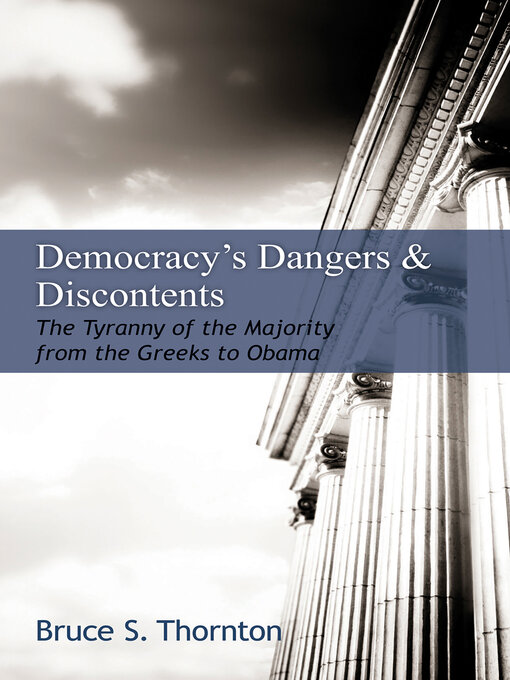By democracy we usually mean a government comprising popular rule, individual human rights and freedom, and a free-market economy. Yet the flaws in traditional Athenian democracy can instruct us on the weaknesses of that first element of modern democracies shared with Athens: rule by all citizens equally. In Democracy's Dangers & Discontents, Bruce Thornton discusses those criticisms first aired by ancient critics of Athenian democracy, then traces the historical process by which the Republic of the founders has evolved into something similar to ancient democracy, and finally argues for the relevance of those critiques to contemporary U.S. policy. He asserts that many of the problems we face today are the consequences of the increasing democratization of our government and that the flaws of democracy are unlikely to be corrected. He argues that these dangers and discontents do not have to end in soft despotism—that American democracy's aptitude and strength can be recovered by restoring the limited government of the founders.
- All Fiction Ebooks
- All Fiction Audiobooks
- Sno-Isle Reads Together
- Science Fiction Firsts
- Mystery & Suspense Firsts
- Available Now
- Try a Light Novel
- Horror & Dark Fiction
- Rainbow Connections
- World War II Historical Fiction
- Cozy Science Fiction and Fantasy
- Faith & Felonies
- Biblical Romance
- See all
- All Nonfiction Ebooks
- All Nonfiction Audiobooks
- Available Now
- Pour Some Sugar On Me
- Last Call For Alcohol
- Transgender and Nonbinary Voices
- You Don't Need AI To Write
- Relationship Rx: Getting Along With the one I Love
- Coping With Stress & Anxiety
- When Someone Shows You Who They Are
- Travel Plans
- Knitting vs. Crochet: Crafting's Ultimate Duel!
- Common Ground: Community Connections Through Shared Experiences
- See all

